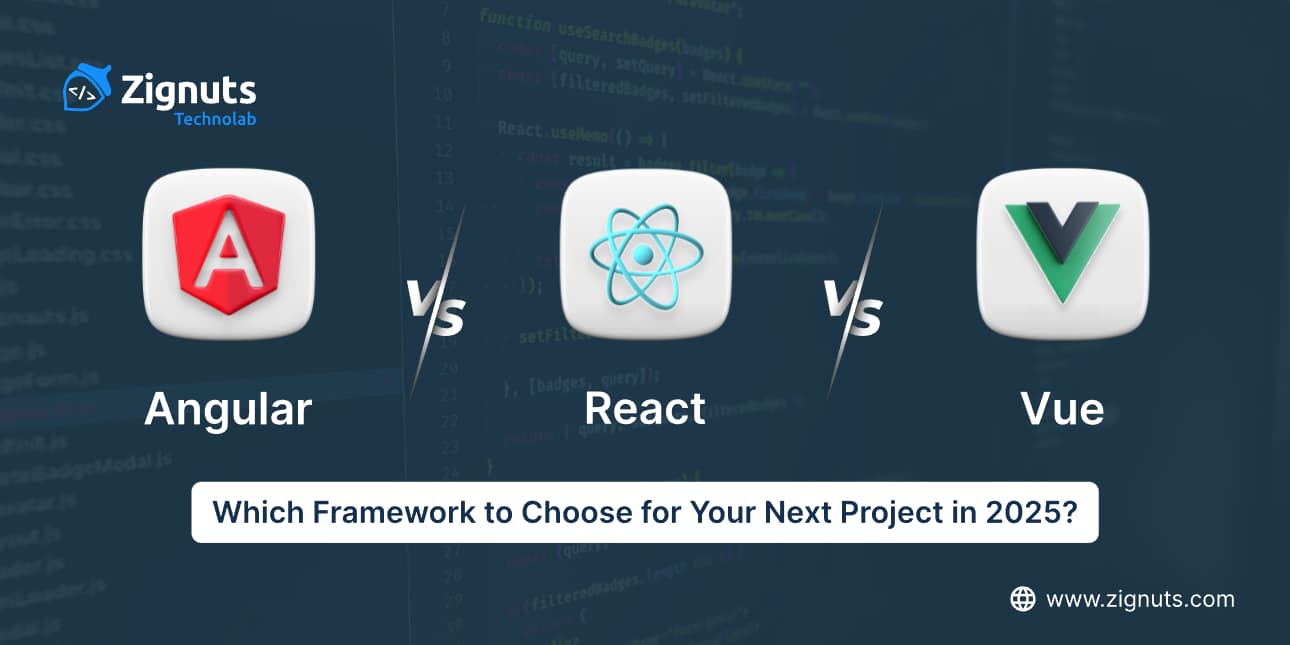React vs. Vue vs. Angular: Which Framework to Learn in 2023
A comprehensive comparison of the most popular JavaScript frameworks to help you decide which one to master for your career goals.

Choosing which JavaScript framework to learn can be daunting for both beginners and experienced developers. In 2023, React, Vue, and Angular continue to dominate the frontend development landscape, each with its own strengths, weaknesses, and ideal use cases.
The State of JavaScript Frameworks in 2023
Before diving into the specifics of each framework, it's important to understand the current landscape. All three frameworks have matured significantly, with strong ecosystem support, active communities, and widespread adoption in enterprise applications.
According to the 2022 Stack Overflow Developer Survey, React remains the most commonly used web framework (42.6%), followed by Angular (20.4%) and Vue (18.8%). However, popularity alone shouldn't be your deciding factor.
"The best framework isn't the one with the most GitHub stars—it's the one that best solves your specific problems and aligns with your team's expertise."
React: The Flexible Library
React is a JavaScript library for building user interfaces, maintained by Facebook and a community of individual developers and companies. It's known for its flexibility and has become immensely popular since its release in 2013.
Strengths of React
- Flexibility - React is a library, not a full framework, giving developers freedom to choose additional tools
- Large Ecosystem - Huge community support with countless third-party libraries
- Component-Based Architecture - Reusable components make code more maintainable
- Virtual DOM - Efficient updating and rendering of components
- Job Market - Highest number of job opportunities among the three
Weaknesses of React
- Too Much Choice - The flexibility can be overwhelming for beginners
- JSX Learning Curve - Mixing HTML and JavaScript can be confusing initially
- Frequent Changes - The ecosystem evolves rapidly, requiring constant learning
Vue: The Progressive Framework
Vue is a progressive JavaScript framework created by Evan You and maintained by an active community. It's designed to be incrementally adoptable, meaning you can use as much or as little of it as you need.
Strengths of Vue
- Gentle Learning Curve - Easy for beginners to pick up, especially those with HTML/CSS background
- Comprehensive Documentation - Widely regarded as the best documentation among frameworks
- Versatility - Can be used for both small interactive parts and large single-page applications
- Performance - Small bundle size and excellent runtime performance
- Developer Experience - Excellent devtools and intuitive API design
Weaknesses of Vue
- Smaller Job Market - Fewer job opportunities compared to React and Angular
- Corporate Backing - While it has corporate users, it doesn't have the same level of corporate backing as React or Angular
- Language Barriers - Some resources are primarily in Chinese (though English documentation is excellent)
Angular: The Enterprise Framework
Angular is a platform and framework for building single-page client applications using HTML and TypeScript. Developed and maintained by Google, it provides a complete solution for building large-scale applications.
Strengths of Angular
- Full-Featured Framework - Includes everything needed for development out of the box
- TypeScript by Default - Strong typing helps catch errors early and makes code more maintainable
- Enterprise Ready - Excellent for large teams and complex applications
- CLI Tools - Powerful command-line interface for generating and maintaining projects
- Consistent Structure - Strong conventions make it easy for developers to move between Angular projects
Weaknesses of Angular
- Steep Learning Curve - More concepts to learn compared to React or Vue
- Verbose Code - Requires more code to accomplish the same tasks
- Performance - Larger bundle size can impact initial load times
- Less Flexibility - The "Angular way" of doing things can feel restrictive
// Simple Angular Component
import { Component } from '@angular/core';
@Component({
selector: 'app-counter',
template: `
You clicked {{ count }} times
`
})
export class CounterComponent {
count = 0;
increment() {
this.count++;
}
}Which Framework Should You Learn?
The answer depends on your goals, background, and the type of projects you want to work on:
Choose React if:
- You want the most job opportunities
- You value flexibility and choosing your own tools
- You're interested in React Native for mobile development
- You enjoy a large, active community with abundant resources
Choose Vue if:
- You're a beginner looking for an easy learning curve
- You prefer detailed, well-organized documentation
- You want a balance between structure and flexibility
- You work on smaller projects or need to progressively enhance existing projects
Choose Angular if:
- You work in enterprise environments on large applications
- You prefer strong conventions and a full-featured framework
- You value TypeScript's type safety and tooling
- You need a comprehensive solution with built-in best practices
The Future of These Frameworks
All three frameworks continue to evolve and have strong futures:
- React continues to innovate with features like Server Components and ongoing improvements to concurrent features
- Vue has solidified its position with the Composition API and continues to grow in adoption
- Angular maintains its enterprise focus with regular updates and improvements to developer experience
At WBS Coding School, we teach all three frameworks to ensure our students are prepared for diverse job opportunities. We believe understanding the principles behind these frameworks is more important than mastering any single one.
Ultimately, the best framework to learn is the one that aligns with your career goals and interests. The good news is that concepts learned in one framework often transfer to others, making it easier to learn additional frameworks later in your career.
